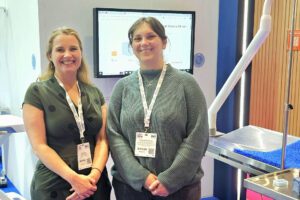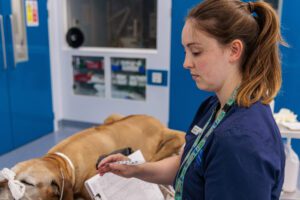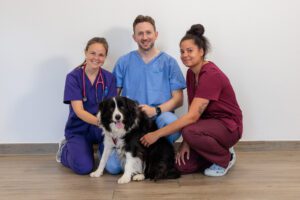Objective
To evaluate radioulnar joint modification using computed tomography (CT) after bi-oblique dynamic proximal ulnar osteotomy (BODPUO).
Study design
Clinical Study
Animals
Dogs (n = 18, 26 elbows) with elbow incongruence treated by a single surgeon with BODPUO.
Methods
Radioulnar space measurements were performed on transverse, frontal, and sagittal CT projections preoperatively and after radiographically determined osteotomy healing.
Results
Three transverse plane measurements were statistically different than preoperatively at 12 weeks after the surgery demonstrating divergence of the lateral coronoid region of the radial incisure of the ulna from the radial head. None of the other measurements within the elbow were statistically different, but measurements of the radioulnar space at the level of the osteotomy site documented a statistically significant caudal tipping of the distal extent of the proximal ulnar segment.
Conclusion
CT measurements documented a significant increase in radioulnar joint space at the mid-coronoid level, at the level of the base of the medial coronoid process, and at the level of the lateral coronoid process. This corresponds to cranially directed rotation of the medial coronoid process around the proximal radial epiphysis. A tendency for cranial tilting of the medial coronoid process was observed, which was confirmed by statistically significant caudal tipping of the distal extent of the proximal ulnar segment.





